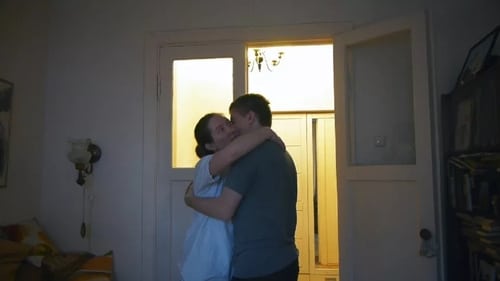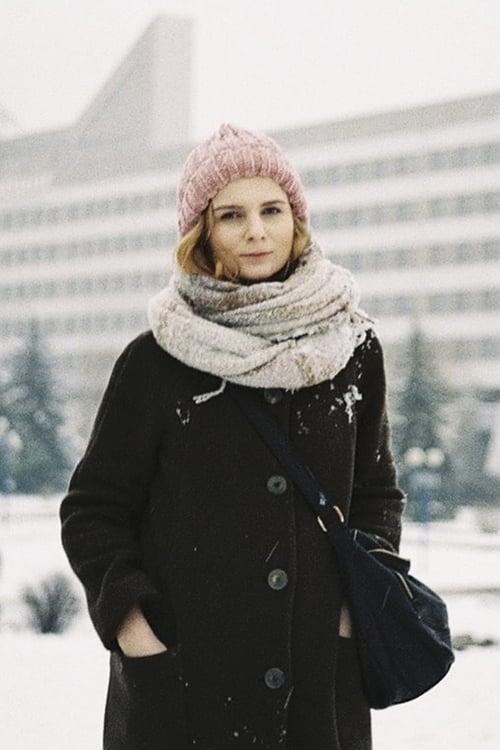Yuliya Shatun
出生 : , Mozyr, Gomel Oblast, Byelorussian SSR, USSR [now Mazyr, Belarus]
略歴
Yuliya Shatun (1992) studied applied cultural studies at Belorusian State University in Minsk, and currently, she is studying direction at the Moscow School of New Cinema. Her debut film, Tomorrow (2017), won awards at film festivals in Minsk and Marseilles.

Director of Photography
Nikita and Volha have been maintaining a dysfunctional relationship for the past 8 years. In the following movie they play fictional Nikita and Volha who have only just met. Can anything be started anew at the end of history?

Director
For nearly 10 years, Belarus has had a Shelter — place for women victims of domestic violence. This is a big private house in Minsk. Many victims are brought here directly in their home clothes — the only thing they were able to escape from the aggressor. Belarus has not yet adopted a law on combating domestic violence. In this issue, you will find out the real stories of residents of the Shelter, what problems not only clients but also employees of the shelter have to face, and why it is so important to pass a law.

Director
Belarus is the only country in Europe where there is still a compulsory assignment of students studying at the expense of the state budget. The best graduates of the country who have passed a large competition for admission and who have earned the right to study for free with their knowledge are sent to places where no one else agrees to work due to difficult working conditions and lack of infrastructure.

Director
Minsk Komarovsky market is the main food market in Belarus. People call it “Komarovka”. It organically coexists people of all ages, backgrounds and characters. While for some the market has become a second home, others continue to dream of more.

Producer
The film centers on a high-school student experiencing the last day of summer.

Writer
The film centers on a high-school student experiencing the last day of summer.

Director
The film centers on a high-school student experiencing the last day of summer.

Herself (voice)
Listening to the persistent humming sound, we follow the author on her existential journey through four cities consisting of real images and footage taken by the director’s father 25 years ago that always bring us to some visible or invisible border.

Sound
Listening to the persistent humming sound, we follow the author on her existential journey through four cities consisting of real images and footage taken by the director’s father 25 years ago that always bring us to some visible or invisible border.

Editor
Listening to the persistent humming sound, we follow the author on her existential journey through four cities consisting of real images and footage taken by the director’s father 25 years ago that always bring us to some visible or invisible border.

Producer
Listening to the persistent humming sound, we follow the author on her existential journey through four cities consisting of real images and footage taken by the director’s father 25 years ago that always bring us to some visible or invisible border.

Writer
Listening to the persistent humming sound, we follow the author on her existential journey through four cities consisting of real images and footage taken by the director’s father 25 years ago that always bring us to some visible or invisible border.

Director
Listening to the persistent humming sound, we follow the author on her existential journey through four cities consisting of real images and footage taken by the director’s father 25 years ago that always bring us to some visible or invisible border.

Director
For the 30th anniversaire of FIDMarseille about thirty directors have done us the honor of offering us some very beautiful short films.

Producer
Three directors make a movie about the events of their past week. Relationships, work, and day-to-day personal struggle—the minute details still fresh on their minds—are shown with unseen crystal clarity that challenges the very notion of dramatic fiction.

Director of Photography
Three directors make a movie about the events of their past week. Relationships, work, and day-to-day personal struggle—the minute details still fresh on their minds—are shown with unseen crystal clarity that challenges the very notion of dramatic fiction.

Screenplay
Three directors make a movie about the events of their past week. Relationships, work, and day-to-day personal struggle—the minute details still fresh on their minds—are shown with unseen crystal clarity that challenges the very notion of dramatic fiction.

Director
Three directors make a movie about the events of their past week. Relationships, work, and day-to-day personal struggle—the minute details still fresh on their minds—are shown with unseen crystal clarity that challenges the very notion of dramatic fiction.

Yuliya
Three directors make a movie about the events of their past week. Relationships, work, and day-to-day personal struggle—the minute details still fresh on their minds—are shown with unseen crystal clarity that challenges the very notion of dramatic fiction.

Producer
In a small, snow-covered town in Belarus, a former English teacher manages to scrape a living distributing leaflets to people’s letterboxes. In the evening, he joins his wife in their dingy apartment, and together they reminisce about their son, a student in Minsk they rarely see. Possibly their only excitement of the week is buying a lottery ticket, which, for a few seconds, gives them a chance to dream. Yuliya Shatun’s camera, at first oddly focused on the white expanses along every roadside, then begins to scrutinise the teacher in his comings and goings – a precise recording with, however, a hint of the moroseness of a terrain so rare in today’s cinema. The teacher has stoically adapted to a degenerate world and a life fuelled by stifled shame. An odour of neglect wafts between the apartment blocks, the uttered words and the background noise of the television. A certain irony floats in the air too, and it needs Yuliya Shatun’s patience to grasp and take responsibility for it.

Screenplay
In a small, snow-covered town in Belarus, a former English teacher manages to scrape a living distributing leaflets to people’s letterboxes. In the evening, he joins his wife in their dingy apartment, and together they reminisce about their son, a student in Minsk they rarely see. Possibly their only excitement of the week is buying a lottery ticket, which, for a few seconds, gives them a chance to dream. Yuliya Shatun’s camera, at first oddly focused on the white expanses along every roadside, then begins to scrutinise the teacher in his comings and goings – a precise recording with, however, a hint of the moroseness of a terrain so rare in today’s cinema. The teacher has stoically adapted to a degenerate world and a life fuelled by stifled shame. An odour of neglect wafts between the apartment blocks, the uttered words and the background noise of the television. A certain irony floats in the air too, and it needs Yuliya Shatun’s patience to grasp and take responsibility for it.

In a small, snow-covered town in Belarus, a former English teacher manages to scrape a living distributing leaflets to people’s letterboxes. In the evening, he joins his wife in their dingy apartment, and together they reminisce about their son, a student in Minsk they rarely see. Possibly their only excitement of the week is buying a lottery ticket, which, for a few seconds, gives them a chance to dream. Yuliya Shatun’s camera, at first oddly focused on the white expanses along every roadside, then begins to scrutinise the teacher in his comings and goings – a precise recording with, however, a hint of the moroseness of a terrain so rare in today’s cinema. The teacher has stoically adapted to a degenerate world and a life fuelled by stifled shame. An odour of neglect wafts between the apartment blocks, the uttered words and the background noise of the television. A certain irony floats in the air too, and it needs Yuliya Shatun’s patience to grasp and take responsibility for it.

Editor
In a small, snow-covered town in Belarus, a former English teacher manages to scrape a living distributing leaflets to people’s letterboxes. In the evening, he joins his wife in their dingy apartment, and together they reminisce about their son, a student in Minsk they rarely see. Possibly their only excitement of the week is buying a lottery ticket, which, for a few seconds, gives them a chance to dream. Yuliya Shatun’s camera, at first oddly focused on the white expanses along every roadside, then begins to scrutinise the teacher in his comings and goings – a precise recording with, however, a hint of the moroseness of a terrain so rare in today’s cinema. The teacher has stoically adapted to a degenerate world and a life fuelled by stifled shame. An odour of neglect wafts between the apartment blocks, the uttered words and the background noise of the television. A certain irony floats in the air too, and it needs Yuliya Shatun’s patience to grasp and take responsibility for it.

Director
In a small, snow-covered town in Belarus, a former English teacher manages to scrape a living distributing leaflets to people’s letterboxes. In the evening, he joins his wife in their dingy apartment, and together they reminisce about their son, a student in Minsk they rarely see. Possibly their only excitement of the week is buying a lottery ticket, which, for a few seconds, gives them a chance to dream. Yuliya Shatun’s camera, at first oddly focused on the white expanses along every roadside, then begins to scrutinise the teacher in his comings and goings – a precise recording with, however, a hint of the moroseness of a terrain so rare in today’s cinema. The teacher has stoically adapted to a degenerate world and a life fuelled by stifled shame. An odour of neglect wafts between the apartment blocks, the uttered words and the background noise of the television. A certain irony floats in the air too, and it needs Yuliya Shatun’s patience to grasp and take responsibility for it.

Director
An unbiased observation of the celebration of Independence Day of Belarus in Minsk on 3rd of July 2018.





